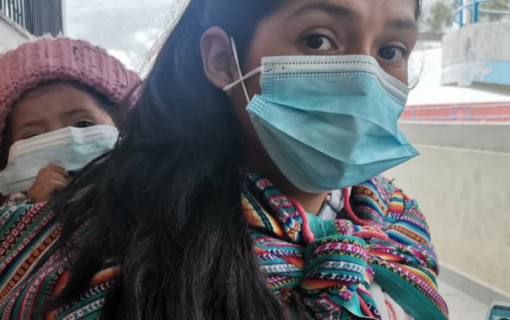
Elections in The Gambia: Toward Consensus and Access
On September 9, the International Foundation for Electoral Systems (IFES) and the Independent Electoral Commission (IEC) of The Gambia co-organized a workshop on the theme “Elections in The Gambia: Toward Consensus and Access.” The event in Kanifing was attended by representatives from the IEC, the Constitutional Review Commission (CRC), civil society organizations, as well as representatives from the international community, including the European Union delegation, United States Embassy and International Republican Institute. Participants discussed critical issues around the legal framework and reform, voting procedures and voter registration.
The “Gambian Legal Framework for Elections” session, moderated by IEC Commissioner Anthony Robert Secka, discussed the way forward for The Gambia’s electoral legal reform process. Participants emphasized that electoral laws should be harmonized with a new Constitution or with amendments to the 1997 Constitution of the Republic of The Gambia. The establishment of the CRC was seen as a means of harmonizing laws and eliminating current legal inconsistencies. A new Constitution will require wide public consultation, sensitization and participation, as well as the holding of a referendum. However, uncertainties remain around the sequences of conducting a constitutional referendum, legal amendments and the 2021 elections.
IFES’ Law Expert Manuel Wally then led the “Voter Registration" session. The Gambia’s current voter register is now eight years old, and supplementary registration in 2016 added new voters but did not systematically remove deceased or emigrated registrants. Participants emphasized the need to have an effective deduplication mechanism for the voter register. Two alternative methods were discussed: (1) conducting a fresh registration exercise for 2021, or (2) restoring The Gambia’s traditional door-to-door, list-to-voter audits prior to the next cycle. It was noted that a direct-capture biometric voter registration facility would be costly, and medium-technology solutions also allow for deduplication but require well-coordinated field operations. Consensus was reached that the IEC should provide continuous voter registration by opening the register at least annually for three months.
West Africa Network for Peacebuilding-Gambia’s reflections were discussed in the “Participation in the Electoral Process” session. Participants strongly recommended lifting restrictions barring the participation of candidates and voters. These include lifting residency requirements for candidates and providing Gambians in the diaspora the opportunity to register as voters, vote abroad, and contest national elections. In addition, participants discussed the possibility of holding different elections concurrently as a cost-cutting strategy, which could include merging presidential and legislative elections and conducting local elections at a later date.
This multi-stakeholder event marked an important milestone of IFES’ Gambian project, "Promoting the Integrity of Elections and Meaningful Political Transitions in The Gambia,” funded by the United States Agency for International Development. Under the project, IFES conducted a two-week rapid response assessment during the April 6, 2017, elections, focusing on legal framework reform, election dispute resolution, and Election Day processes and procedures. Findings from the rapid response assessment allowed IFES to prioritize its technical assistance to the IEC following the 2017 electoral process. IFES has since then engaged in continued consultation with the IEC and held several roundtable discussions, such as on the inclusion of persons with disabilities in the electoral and political process and on legal and institutional measures to strengthen the role of women as candidates and public-sector leaders. The September 9 event was a platform for IFES to discuss electoral legal and regulatory reform with the IEC while providing them with tools to continue engaging in this process after the project ends.










